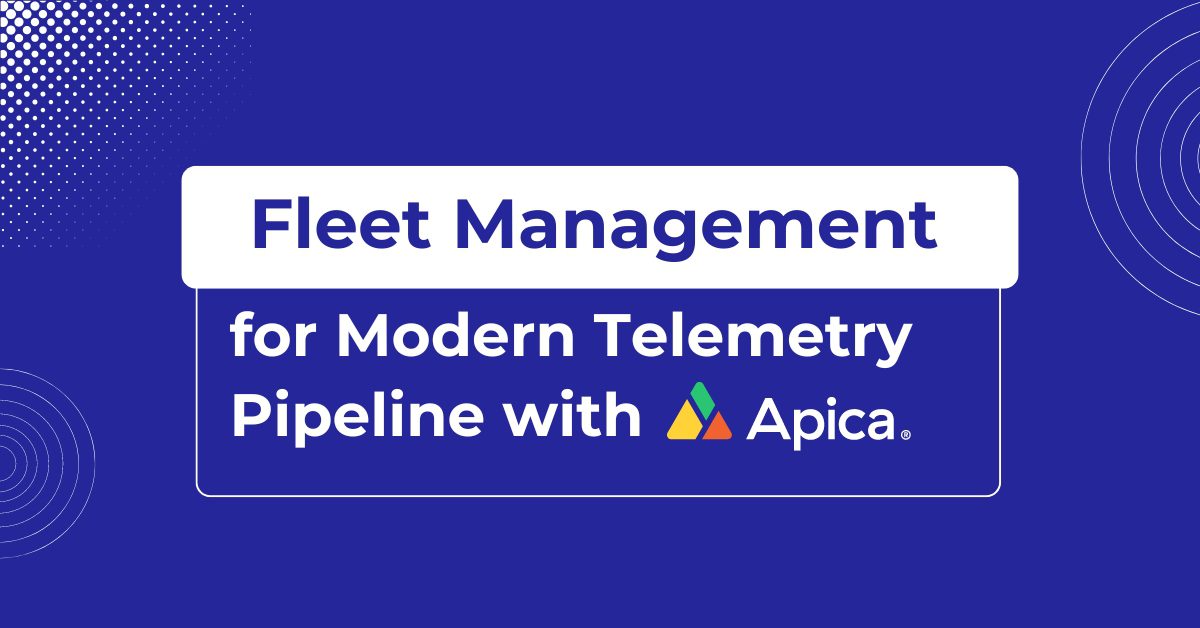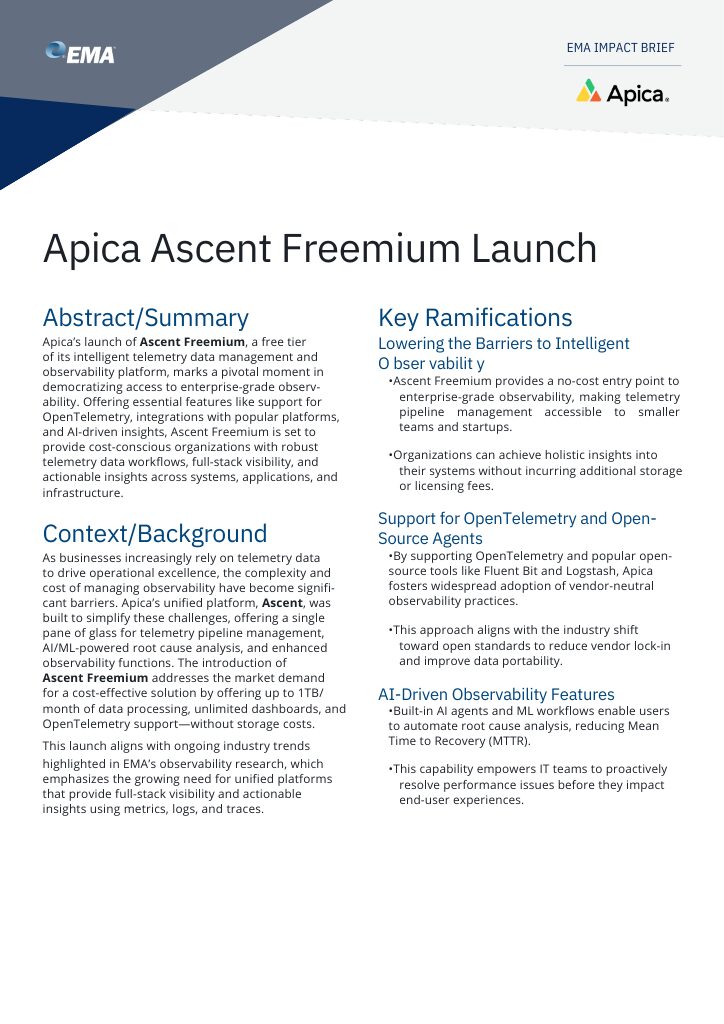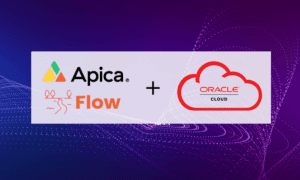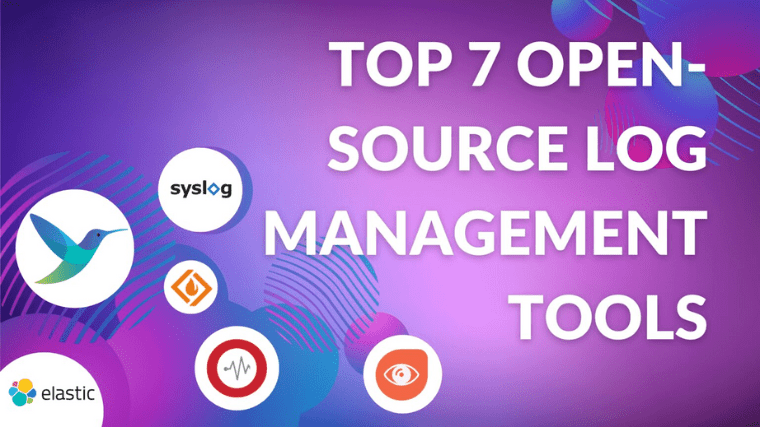The popularity of open-source log management tools has been on a steady rise in recent years. As businesses become increasingly reliant on software applications and cloud-based services, logging has become an essential part of operations.
Log management is a crucial process for organizations to collect, store, and analyze log data. Businesses can troubleshoot problems, identify security threats, and optimize system performance by effectively managing log data.
While there are numerous commercial log management tools available, open-source alternatives offer compelling advantages such as cost savings, flexibility, and strong community support.
However, it’s also important to highlight that while open-source log management tools offer numerous advantages, they have their limitations. That being said, these limitations can sometimes mold into potential disadvantages.
In this blog post, we will explore the top 7 open source log management tools for 2023 and discuss their features and benefits. We’ll list the most popular solutions and review their features, pros, and cons.
The Top Open-Source Log Management Tools in 2023
1. Elastic Stack (ELK)
The Elastic Stack, consisting of Elasticsearch, Logstash, and Kibana, remains a popular open-source log management suite.
Elasticsearch serves as a distributed search and analytics engine, Logstash collects and processes log data, and Kibana provides a web-based visualization platform.
Elastic Stack offers scalability, real-time search capabilities, and powerful analytics for efficient log management.
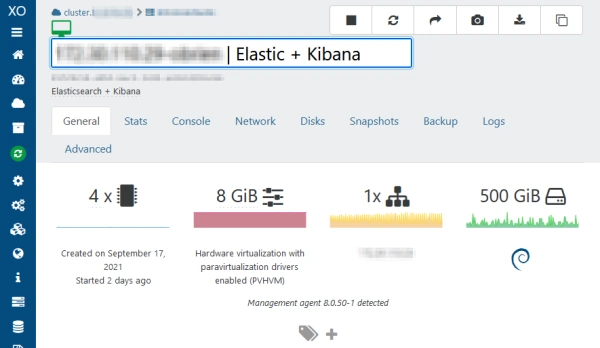
Salient Features:
- Cloud Log Management: Manages and analyzes logs in public and private clouds.
- Easy Deployment, Security, and Operations: Simple setup, secure operations, and user-friendly interfaces.
- AWS Integration: Seamless integration with AWS services like Amazon Kinesis Data Firehose and AWS IoT.
- Inverted Indexes: Faster log search querying with an optimized data structure.
- Extensive Integration Compatibility: Supports 100+ compatible integrations for versatile log management.
- BKD Trees for Geodata: Efficient storage and retrieval of geospatial log data.
Pros:
- Free and open source: No licensing fees and accessible to all.
- Scalable: Can scale to meet the needs of large organizations.
- Extensible: Offers various plugins for adding new features.
- Popular: Large community of users and contributors.
Cons:
- Complexity: Setup and management can be complex.
- Performance: Slowness may occur with large data volumes.
- Security: Improper configuration can pose security risks.
2. Graylog
Graylog is another widely adopted open-source log management tool that provides centralized log collection, real-time searching, and advanced analytics.
It supports various data sources and offers customizable dashboards, alerting functionalities, and integrated threat intelligence feeds.
Graylog simplifies log analysis and facilitates effective log monitoring in complex environments.
Salient Features:
- Purpose-built for log analytics, providing a comprehensive solution for log management and analysis.
- Simplifies data exploration with a user-friendly interface and powerful search capabilities.
- Facilitates compliance audits through centralized log storage, access controls, and report generation.
- Supports proactive threat hunting by monitoring logs in real time and investigating security events.
- Fully multi-tenant, ensuring secure separation and access controls for different teams or customers.
- Easily integrates with other components in your tech stack, including Elasticsearch for improved search performance and scalability.
- Collects and manages logs from various sources, parsing, normalizing, and enriching the data.
- Delivers actionable insights through real-time alerting and integrations with incident response tools.
Pros:
- Effortless dashboard creation: Quickly generate visually appealing dashboards without extensive effort or coding skills.
- User-friendly interface: Enjoy a great GUI and intuitive search filter syntax for seamless log exploration and analysis.
- Seamless integration with .NET applications: Utilize log4net appenders, a widely supported framework, to easily incorporate Graylog into your .NET application.
- Cost-effective solution: Access a wide range of features at a lower cost compared to alternative solutions on the market.
- Versatile log filtering: Create filters and dashboards for various log types, enabling comprehensive log analysis and monitoring.
- Efficient log searching: When used effectively, Graylog ensures speedy log searches, thanks to its proficient management of the Elasticsearch index.
- Simplified log management: Easily set up ingestion lines to collect and process logs in one centralized location.
Cons:
- Inability to directly send Windows event logs without an external daemon
- Dependency on outdated Elasticsearch version (7.10 or lower)
- Confusion between streams and inputs configuration
- Multi-line logs breaking into individual logs
- Incapability to reading from Syslog files
3. Fluentd
Fluentd is a lightweight log collector known for its flexibility and scalability. It allows organizations to collect log data from diverse sources and route it to multiple destinations simultaneously.
Written primarily in the Ruby programming language, it’s a cross-platform open-source data collection tool originally developed at Treasure Data.
Salient Features:
- Fluentd’s extensive plugin ecosystem facilitates integration with various systems and services.
- With its robust architecture, Fluentd excels in handling log data from large-scale environments.
- It provides seamless synchronization with Kubernetes, allowing for improved monitoring and management of services and infrastructure.
- Using FluentD with Kubernetes allows fine-tuning of performance and facilitates fault detection.
Pros:
- Abundant plugins for data collection and storage from diverse sources.
- Collect data from log files, databases, and Kafka streams.
Process and store logs in JSON format or NoSQL. - Part of CNCF (Cloud Native Computing Foundation).
- Collect and store Kubernetes and Docker logs in various cloud storage.
- Active community and support via Fluentd Slack workspace.
- Minimal resource consumption and control over parsing and optimization.
- Quick and customizable log shipment to multiple destinations.
Cons:
- Challenging to monitor and troubleshoot internal issues like buffer overflows.
- Requires additional tools like DataDog or Prometheus for collecting Fluentd metrics.
- Even with high availability configurations, a different design is needed to ensure service availability.
- Performance is relatively slow, with each Fluentd instance processing only around 18,000 events per second.
- Enabling multi-process workers to increase throughput may lead to compatibility issues with certain plugins.
- Unable to parse large log lines, such as Json logs with extensive exceptions and multiline logs.
- Requires the use of separate commands to delete old log files during log rotation.
4. SigNoz
SigNoz is a relatively newer open-source log management tool that stands out with its unique features such as distributed tracing and anomaly detection.
It offers end-to-end visibility into the system’s performance and enables effective troubleshooting.
SigNoz supports various data sources, and its intuitive UI and powerful query language make log analysis and monitoring hassle-free.
Salient Features:
- SigNoz is an open-source observability solution that follows open standards and integrates with OpenTelemetry.
- It consolidates metrics, traces, and logs in a single interface, eliminating the need to use multiple tools like Prometheus and Jaeger separately.
- SigNoz leverages columnar data stores, enabling efficient aggregation queries and facilitating data analysis through Group BY and aggregates.
- The platform enables quick identification of performance issues and root cause analysis.
Pros:
- Monitor application overview metrics such as requests per second, latency, and error rates.
- Identify the slowest endpoints in your application.
- Analyze detailed request traces to identify issues in downstream services, slow database queries, and calls to third-party services like payment gateways.
- Filter traces by various criteria such as service name, operation, latency, error, tags/annotations.
Create customized dashboards for infrastructure monitoring. - Set up alerts based on specific metrics to proactively detect and respond to issues.
- Enjoy a unified user interface for both metrics and traces, eliminating the need to switch between different tools like Prometheus and Jaeger for debugging purposes.
Cons:
- Less mature compared to established commercial log management tools. SigNoz is relatively new and may lack some features found in more established tools.
- Complexity in setup and configuration. It’s a powerful tool but can be complex to set up and configure, especially for those unfamiliar with open-source software.
- Requires technical expertise. SigNoz demands a high level of technical knowledge to fully utilize its capabilities due to its complexity.
You can check out their Github repo at – https://github.com/SigNoz/signoz
5. Syslog-ng
Syslog-ng is a popular open-source syslog daemon that collects and forwards log data to multiple destinations.
The Highly configurable architecture of Syslog-ng can adapt to the specific requirements of different organizations. Additionally, it provides advanced filtering and routing capabilities, ensuring efficient log collection and analysis.
Salient Features:
- Versatile log collection from various sources and formats.
- Advanced log parsing and flexible filtering options.
- Reliable log forwarding to multiple destinations.
- High-performance architecture for efficient log processing.
- Flexible log transformation and enrichment capabilities.
- Scalability and centralized log management support.
- Security measures for encrypted transmission and authentication.
- Extensibility through plugins for customization and tailored solutions.
Pros:
- Powerful and versatile: Offers a wide range of features to collect, parse, and forward logs from various sources to multiple destinations.
- High performance: Capable of handling large log volumes without performance degradation.
- Open source: Being open source, it is free to use and modify, providing control over log management solutions.
- Active community: Benefits from a large and active user and developer community, ensuring strong support and regular updates.
Cons:
- Complex configuration: The tool’s extensive features and capabilities can make configuration complex.
- Less user-friendly: Requires a steeper learning curve compared to some other log management tools.
- Lower popularity: Not as well-known as other tools, potentially resulting in limited support and integrations.
6. Logwatch
Logwatch is a simple yet effective open-source log analysis tool. It generates reports based on log data, enabling organizations to identify potential system issues and security threats.
Logwatch’s user-friendly interface and customizable reporting options make it an ideal choice for organizations seeking straightforward log management solutions.
Salient Features:
- Log aggregation: Collects logs from various sources into a centralized location.
- Log parsing and filtering: Extracts relevant information and applies customizable filters.
- Log analysis and reporting: Generates comprehensive reports and summaries for troubleshooting.
- Alerting and notifications: Sends alerts based on predefined conditions.
- Customization and extensibility: Allows customization of parsing rules, and filters, and supports custom plugins.
- Integration with other tools: Integrates with log analysis and monitoring systems.
- Historical log data retention: Stores historical log data for trend analysis and compliance.
- User-friendly interface: Offers a user-friendly web or command-line interface for easy management.
Pros:
- Simplifies log analysis by summarizing logs.
- Proactively detects issues and anomalies.
- Enhances security by monitoring for threats.
- Optimizes system performance through data analysis.
- Assists with compliance and auditing requirements.
- Saves time and effort through automated log analysis.
Cons:
- Lack of centralization: Logwatch operates per-host, requiring individual setup and configuration.
- Single point of failure: Centralizing logs with Logwatch on a single server poses reliability risks.
- Limited scalability: Logwatch is not designed for large-scale log analysis.
- Lack of advanced features: Logwatch lacks the advanced capabilities of tools like ELK or Splunk.
- Maintenance overhead: Logwatch requires individual configuration and updates on each server.
7. Apache Flume
Apache Flume is a distributed log collection framework that handles high-volume log data from diverse sources. It offers scalability and fault tolerance, making it suitable for large-scale environments.
With its modular architecture and reliable data delivery guarantees, Apache Flume streamlines log collection and management processes.
Salient Features:
- Reliable log collection: Ensures scalable and reliable log data ingestion from diverse sources.
- Flexible data ingestion: Supports various log formats and integrates with different log-producing systems.
- Distributed architecture: Enables horizontal scalability and fault tolerance for handling high log volumes.
- Multiple data sinks: Delivers log data to multiple destinations simultaneously, such as HDFS, Kafka, HBase, and databases.
- Event-based processing: Enables real-time or near real-time log analysis with event routing, filtering, transformation, and enrichment.
- Reliability and fault tolerance: Provides mechanisms for data integrity, replication, and failover handling.
- Extensibility and customizability: Allows easy customization and integration with custom plugins and third-party systems.
- Monitoring and management: Offers built-in monitoring capabilities and integrates with existing monitoring tools.
- Hadoop ecosystem integration: Seamlessly integrates with other Hadoop components for end-to-end log processing and analytics workflows.
Pros:
- Real-time log interpretation: Easily interpret log data in near real-time.
- Versatile data collection: Supports data collection from various sources.
- Suitable for batch and stream processing: Works well for both batch and stream processing applications.
- Simple data transformations: Enables simple transformations during data streaming.
- High reliability: Offers high availability, fault tolerance, load balancing, and failover mechanisms.
- Quick configuration: Allows quick and convenient data ingestion configuration.
- Scalable for large volumes: Can handle large volumes of data from multiple applications and systems.
- Integration with other systems: Provides options for integrating with pipelines and systems like Kafka.
- Potential for upgrades: Possibility of further improvements and upgrades to enhance functionality.
Cons:
- Reliability concerns: Less reliable compared to Apache Kafka, as it may miss messages in case of issues.
- Complex topology: Flume has a complex topology, making it challenging to set up and manage.
- Lack of data replication support: Flume does not provide built-in support for data replication.
- Duplicacy issues: In some cases, Flume does not guarantee unique message delivery at the consumer end, leading to potential duplicity.
- Not real-time: Flume is not real-time, requiring the use of additional ecosystems to achieve its full potential.
- Limited scalability: challenges in scaling data as per demand, which could benefit from upgrades or enhancements.
How Apica Augments to Open-Source Log Management Tools
While open-source log management tools have numerous advantages and are widely embraced by the technology community, they are not always the best option when it comes to business standards.
Factors like complexity, limited documentation, stability, reliability, compliance, and security could prove to be a hurdle for your business requirements.
Opting for a commercial log management tool is a prudent choice for your business, in that it offers enterprise-Level features and support.
apica.io emerges as a comprehensive log management solution. The Apica platform can seamlessly integrate with numerous open-source log management tools, thus enhancing their capabilities in several key areas:
- Feature-richness: Offers advanced analytics, extensive log management, and real-time monitoring features.
- Scalability: Leverages object store technology and distributed computing powered by Kubernetes to ensure scalability. Organizations can efficiently and effectively handle large volumes of log data regardless of the data size or organization’s scale by integrating Apica with open-source log management tools.
- Speed: Apica’s architecture enables fast data retrieval and archival. By leveraging the advantages of object store technology and distributed computing, Apica enhances the speed at which log data can be processed and analyzed. This augmentation improves the overall performance and responsiveness of open-source log management tools.
- Cost-effectiveness: Reduces operational costs by offering a practical real-time platform. Enterprises can optimize resource utilization and minimize infrastructure expenses by leveraging Apica’s cost-effective architecture when integrating it with open-source log management tools.
- Compliance and security: Apica provides end-to-end encryption and secure storage for audit logs. This augmentation ensures that log data is handled securely and complies with data privacy regulations. You can enhance the compliance and security measures of your log management processes by integrating Apica with open-source log management tools.
- Data ownership: Apica empowers organizations to take control of their log data. Organizations that integrate Apica with open-source log management tools can retain ownership of their data and have the flexibility to store and manage log data according to their specific requirements.
- User-friendly interface: Apica offers a user-friendly interface that maximizes performance, scalability, and efficiency.
Bottomline
Open-source log management tools present a cost-effective and customizable solution for gathering, analyzing, and visualizing log data. These tools enable administrators to quickly identify patterns and trends within log data, streamlining the process of diagnosing and resolving issues.
When selecting a log management tool, it is crucial to consider factors such as data collection, ingestion, and processing capabilities. Scalability, security features, integration capabilities with other tools and systems, user interface, and visualization options should also be taken into account. By evaluating these factors, you can choose a log management tool that aligns with your specific use cases.
If you are seeking an affordable log management tool that caters to most of your monitoring requirements, Apica is an excellent choice. It offers logs, metrics, and traces within a unified interface, intelligently correlating these three types of telemetry signals.
Rest assured, and check our full features list of log management which should be writ large.

